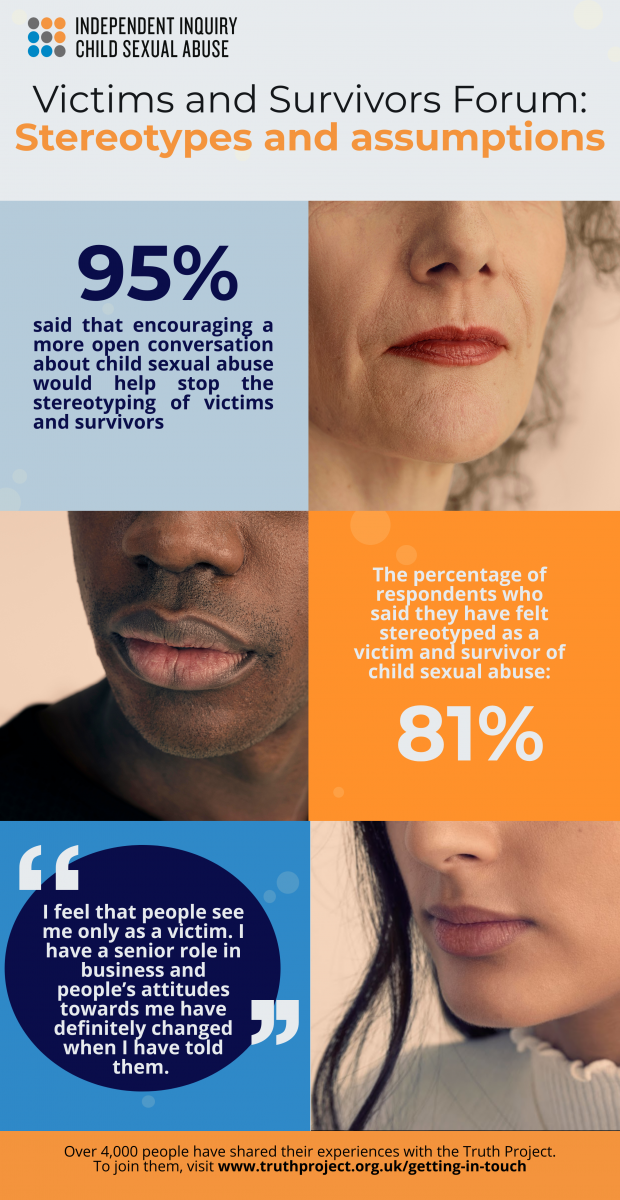Inquiry poll confirms 81% of child sexual abuse survivors feel stereotyped
Based on a poll of 116 survivors from the Inquiry’s Victims and Survivors Forum, the findings revealed that more than half did not report the abuse because of concerns over how they would be seen by those around them. The Forum gives survivors of child sexual abuse the opportunity to meet, discuss and contribute to the Inquiry's work.
-
95 percent said that encouraging a more open conversation about child sexual abuse would help stop the stereotyping of victims and survivors
-
81 percent said they have felt stereotyped as a victim and survivor of child sexual abuse
-
69 percent said they did not speak out about the abuse due to fears of being stereotyped
“I do not trust anybody with the knowledge that I was abused as a child. I feel that people would look at me differently, either with pity or distrust that there must be something wrong with me now.”
Many survivors talked about how they felt ‘put in a box’ after disclosing their abuse, describing how they’d been labelled as emotionally unstable, damaged or weak. They explained the detrimental impact this had had on both their professional and personal lives.
“When I have disclosed my status as a survivor of child sexual abuse, I feel that people see me only as a victim. I have a senior role in business and people’s attitudes towards me have definitely changed when I have told them. They see me as weak.”
One of the most common stereotypes mentioned was that those who were sexually abused as children would become abusers themselves.
Survivors described how assumptions contribute to the “stigma and shame” which can still surround those impacted by child sexual abuse. They explained how stereotypes have acted as a barrier to them speaking out, or have prevented them from disclosing the abuse altogether.
“There have been too many obstacles to speaking out about my childhood experiences. Being stereotyped is just another one.”
The poll highlights the urgent need for society to break down the wall of silence around child sexual abuse in order to help improve understanding, awareness and the true impact that abuse can have on the lives of those affected.
“It is important for people to understand that the legacy of child abuse affects every aspect of a survivor’s life. It has shaped our experience of the world and how we live moment to moment in it.”
95 percent of victims and survivors said that by encouraging a more open conversation, we can help stop the stereotyping of victims and survivors and ensure that those who feel ready to speak out are able to do so.
The Inquiry is calling for survivors to come forward to its Truth Project - over 4,000 people have now shared their experiences and made recommendations for change.
Inquiry Panel member, Drusilla Sharpling said:
“Survivors of child sexual abuse come from all walks of life. If we are to make recommendations to keep children safe in future, we need to understand the wide range of survivor experiences.
“Whoever you are, and whatever your background, the Truth Project is here to listen to you.”
Survivors of child sexual abuse who would like to share their experiences in writing, over the phone or in person can get in touch with the Inquiry's Truth Project. Visit www.truthproject.org.uk or email share@iicsa.org.uk
